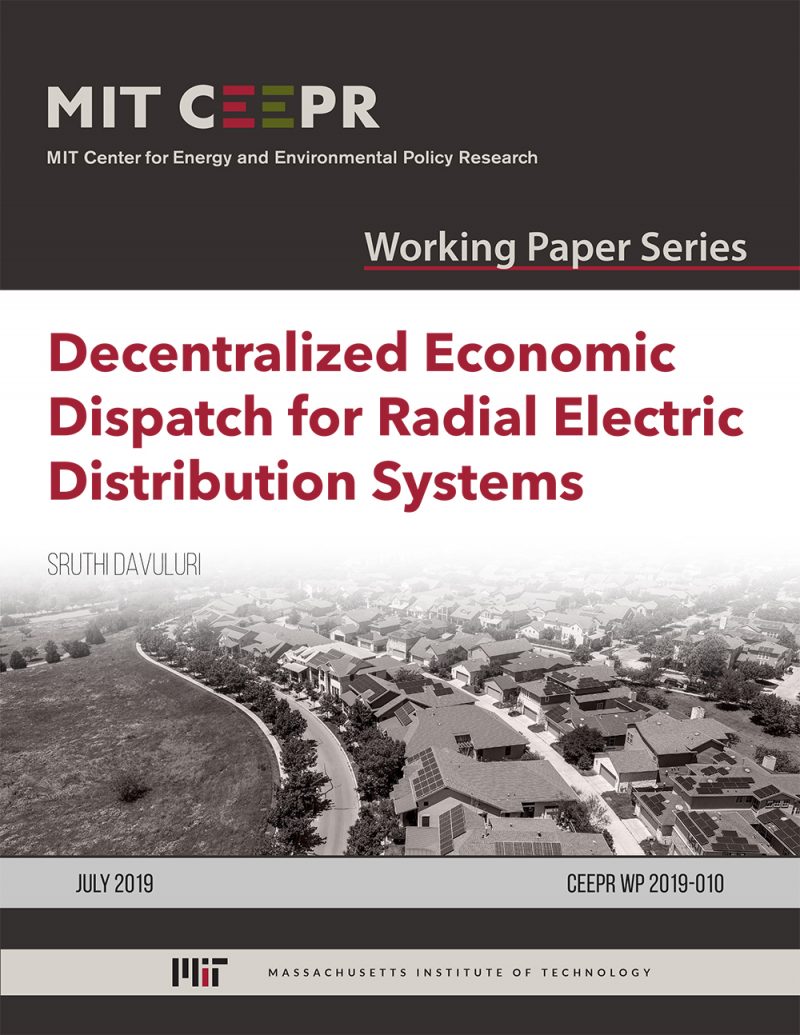Decentralized Economic Dispatch for Radial Electric Distribution Systems
Sruthi Davuluri
July 2019
Electricity power systems, typically a very slow-moving and traditional industry, is in a state of flux as technological innovations, such as rooftop solar, home energy management systems, and electric vehicles, are being rapidly integrated into electric distribution systems. As the need to decarbonize the electricity sector becomes increasingly important, a distribution system operator could serve a useful purpose by operating distribution systems and acting as the market operator at a sufficiently granular level to potentially improve resiliency, decrease delivery losses, and send appropriate price signals to its customers. Currently, this latter functionality is assumed to be done using centralized economic dispatch. Given a very large number of small customers and their diverse preferences, it would be computationally expensive to implement centralized economic dispatch at the distribution level with perfect information.
In this thesis, an alternative algorithm, referred to as decentralized economic dispatch, is introduced which dispatches power for radial electric distribution systems while accounting for heterogeneous demand functions across customers, demonstrating computationally feasibility, and respecting the physical limits of the system. Unlike other approaches proposed in literature, which often take many iterations or do not converge, the algorithm introduced here converges to the same solution as a centralized operator with perfect information, and does so with only two sweeps across the system. A proof-of-concept example on a 46-bus system demonstrates the physical and economic benefits of the distributed algorithm with varying levels of distributed energy resources.



